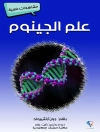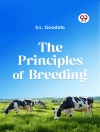This volume focuses on very young children’s (aged 0-8) rights in a digital world. It gathers current research from around the globe that focuses on young children’s rights as agental citizens to the provision of and participation in digital devices and content—as well as their right to protection from harm. The UN Digital Rights Framework of 2014 addresses children’s needs, agency and vulnerability to harm in today’s digital world and implies roles and responsibilities for a variety of social actors including the state, families, schools, commercial entities, researchers and children themselves. This volume presents a broad range of research, including chapters on parental supervision and control, the changing forms of play, early childhood education, media and cultural studies, law, design, health, special-needs education, and engineering. Implicit within this book is the acknowledgement that children of various ages, abilities, socioeconomic and geographic backgrounds should haveequal access to, and positive / non-harmful experiences with, new digital technologies and content—as well as adult support and expertise that enhances these experiences.
This passionate book celebrates the diversity of young children’s activities in the digital world. It interrogates these through four intersecting lenses: their rights, play experiences, contextualised design, and best practice. Balancing children’s eager engagement with digital content alongside adult responsibilities for education, privacy and protection, the volume provides a fitting showcase for work of global relevance.
Professor Lelia Green
Professor of Communications
Edith Cowan University
Perth, Western Australia
This compelling text provides a critical resource to inform our understanding of the intersection of the digital world and children’s rights.
Ilene R. Berson, Ph.D.
Professor of Early Childhood Education
Affiliate Faculty, Learning Design & Technology
Area Coordinator, Early Childhood
Coordinator, Early Childhood Ph.D. Program
University of South Florida
College of Education
A truly international collection that investigates young children’s engagement with digital technologies. Identifying issues of public interest around digital practices, this highly readable book is a valuable resource for researchers, parents and policy makers.
Professor Susan Danby
Director, ARC Centre of Excellence for the Digital Child
and,
Faculty of Education
School of Early Childhood and Inclusive Education QUT
Kelvin Grove, Queensland
Cuprins
Chapter 1. Introduction (Karen Murcia).- Part I: The Early Childhood Home. Chapter 2. “The Tablet is my Best Friend!”: Practices and Perceptions of Young Children and Their Parents (Patricia Dias).- Chapter 3. Family Mediating Practices and Ideologies: Spanish and Portuguese Parents of Children Under Three and Digital Media in Homes (Mitsuko Matsumoto).- Chapter 4. Digital Parenting and Transnational Migration: Cultural and Emotional Drives for Digital Media Use (Teresa Castro).- Chapter 5. Children’s Rights To ‘Good’ and ‘Bad’ Screen Time: Parental Narratives of how Children do Family Online (Helga Sadowski).- Chapter 6. Taking Over the Home: Children’s Mobile Media Play in Domestic Space (Will Balmford) Chapter 7. Think of the Parents: Parental Controls in Digital TV and Family Implications (Maureen Mauk).- Chapter 8. Screening Language Acquisition Skills in a Mediated Childhood (Kylie Stevenson).- Part II: Learning and Teaching.- Chapter 9. Media Arts in Early Childhood: A Framework for Developing Young Children’s Creative Participation in the Digital World (Judith Dinham).- Chapter 10. The Impact of Digital Technologies on the Role of the Early Childhood Teacher (Vicki Schriever).- Chapter 11. Bridging Communities: Developing Digital Literacies and Introducing Digital Technologies in the Montessori Early Childhood Education Classroom (Samantha Owen).- Chapter 12. Understanding the Mutuality of Play and Media Literacy in Young Children: An Ethnographic Investigation of Pre-Primary School Children’s Perspectives on Media Literacy as Seen Through the Lens of Play (Helle Hovgaard Jørgensen).- Chapter 13. Digital Technologies and Children: Does more Digital Interactivity make for Better Learning? (Jo Li Marie-Joelle Tay).- Chapter 14. Disability and Remote Learning During COVID-19 (Katie Ellis).- Part III: Connected Toys at Home and School.- Chapter 15. Internet of Toys and Forms of Play Early Education: A Longitudinal Study of Preschoolers’ Toy-Based Learning Experiences (Pirita Ihamäki).- Chapter 16. Digital Play Objects as Part of Preschool Children’s Imaginative Play (Kristín Dýrfjörð).- Chapter 17. Co-Creating Hybrid Toys as an Approach to Understand Children’s Needs in Play Experience (Tamara Pinos Cisneros).- Chapter 18. Assessing Developmental Difficulties in Children Through Connected Smart Toys (Diego Rivera).- Chapter 19. Young Children Learning to Code: A Digital Technologies Framework for the Early Years (Karen Murcia).- Part IV: Privacy and Protection.- Chapter 20. Researching Representations of Children and Childhood on Instagram: Ethical and Methodological Considerations (Madeleine Dobson).- Chapter 21. The “Sharent” Trap: Parenting in the Digital Age and a Child’s Right to Privacy (Anna Potter).- Chapter 22. Santa’s Little Helper and Star of Instagram, Elf on the Shelf: Gendered Labour; Normalising Surveillance and Digitising a Childhood Phenomenon (Catherine Archer).- Chapter 23.Digital Predictions: Children’s Futures, Opportunities and Obstacles (Michele Willson).- Chapter 24. Research Ethics and Digitising Early Childhood (Madeleine Dobson).
Despre autor
Donell Holloway is a Senior Research Fellow at Edith Cowan University. She has published over 80 refereed journal articles, conference papers and book chapters, and has experience editing special issue journals, scientific reports and books. Her most recent research grant is an Australian Research Council Discovery Grant titled The Internet of Toys: Benefits and risks of connected toys for children.
Michele Willson is Professor of Internet Studies, and Dean of Research (Humanities) at Curtin University, Perth in Western Australia. Her research explores the intersection of technology and the everyday with a particular focus on algorithms, digital childhood, social games and online sociality more generally.
Karen Murcia is Associate Professor and senior member of Curtin University’s STEM Education research and teaching team. She specialises in integrated STEM education research with expertise in science, digital technologies and early childhood education.
Catherine Archer is a researcher and lecturer specializing in social media and strategic communication at Murdoch University. Catherine’s current research interests include social media, focusing on families’ use of social media, influencer relations and ethics, and the blurring of lines between media, marketing, public relations and communication.
Francesca Stocco is Ph D candidate at Edith Cowan University researching connected toys, with particular reference to the commercial governance of these toys. She is currently analysing selected privacy policies (PPs), terms and conditions (T&Cs) and frequently asked questions (FAQs) related the connected toys.












